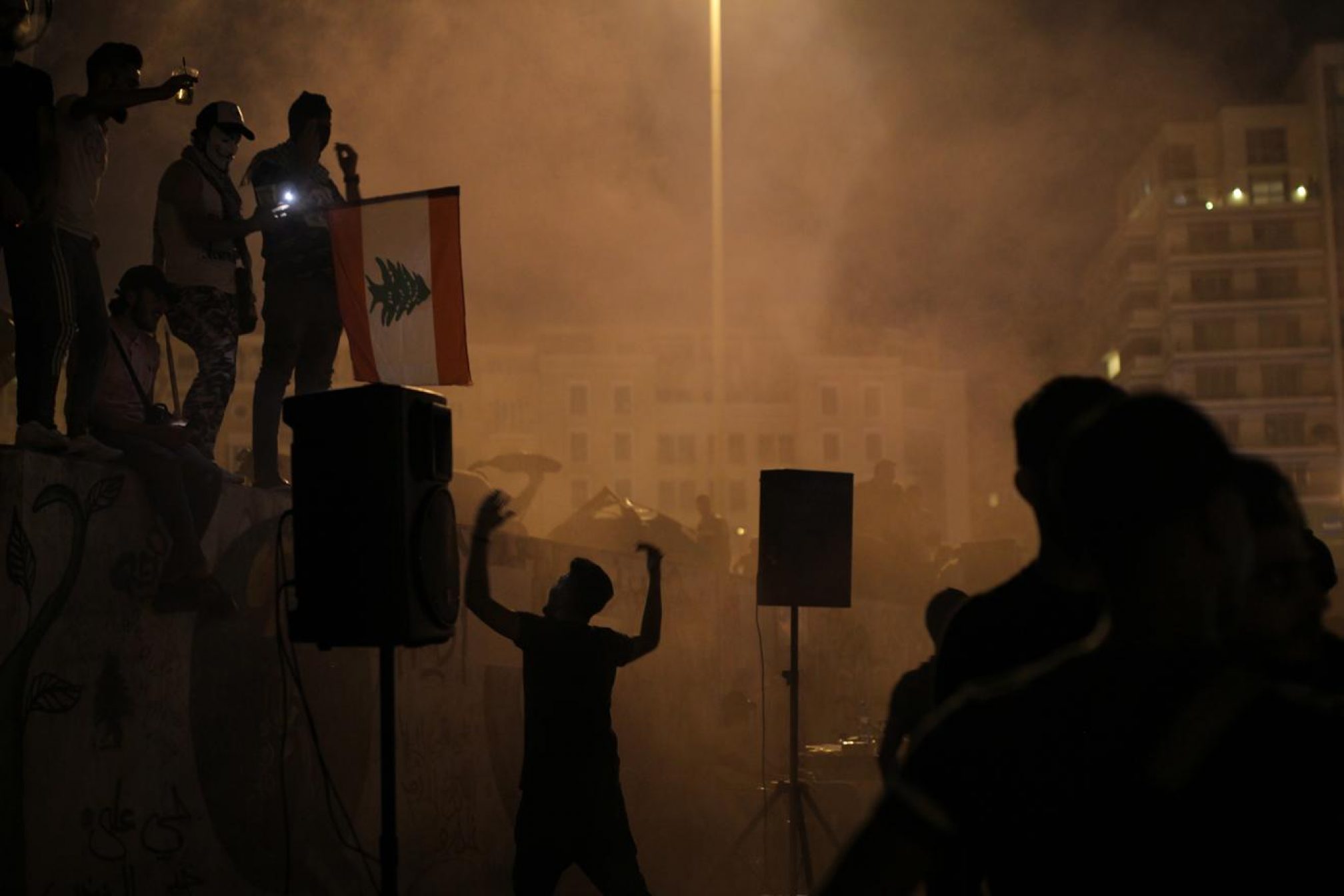 Scene reports
Scene reports
"Protest all day, party all night": How rave is uniting the Lebanese rebellion
The wave of protests in Lebanon have been defined by hard partying rather than destruction and violence
It’s midnight on a Tuesday night in Beirut and a crowd is forming around a white van that has pulled up in Martyrs’ Square. A dense cloud of smoke is being spewed out from the squealing tires of a nearby BMW, and through it moves a mishmash of street children, wealthy students, and shirtless men wearing masks. Some are shouting at two figures scrambling over the roof of the van tying down speakers and plugging in cables.
It’s nine days since Lebanese protesters spontaneously took to the streets after a raft of new taxes were announced, including a $0.29 daily charge on voice calls made through WhatsApp. The eruption of mass protests closed the country’s banks, universities and night clubs, and led to impromptu all-night DIY raves springing up at protest sites and in abandoned buildings across the country.
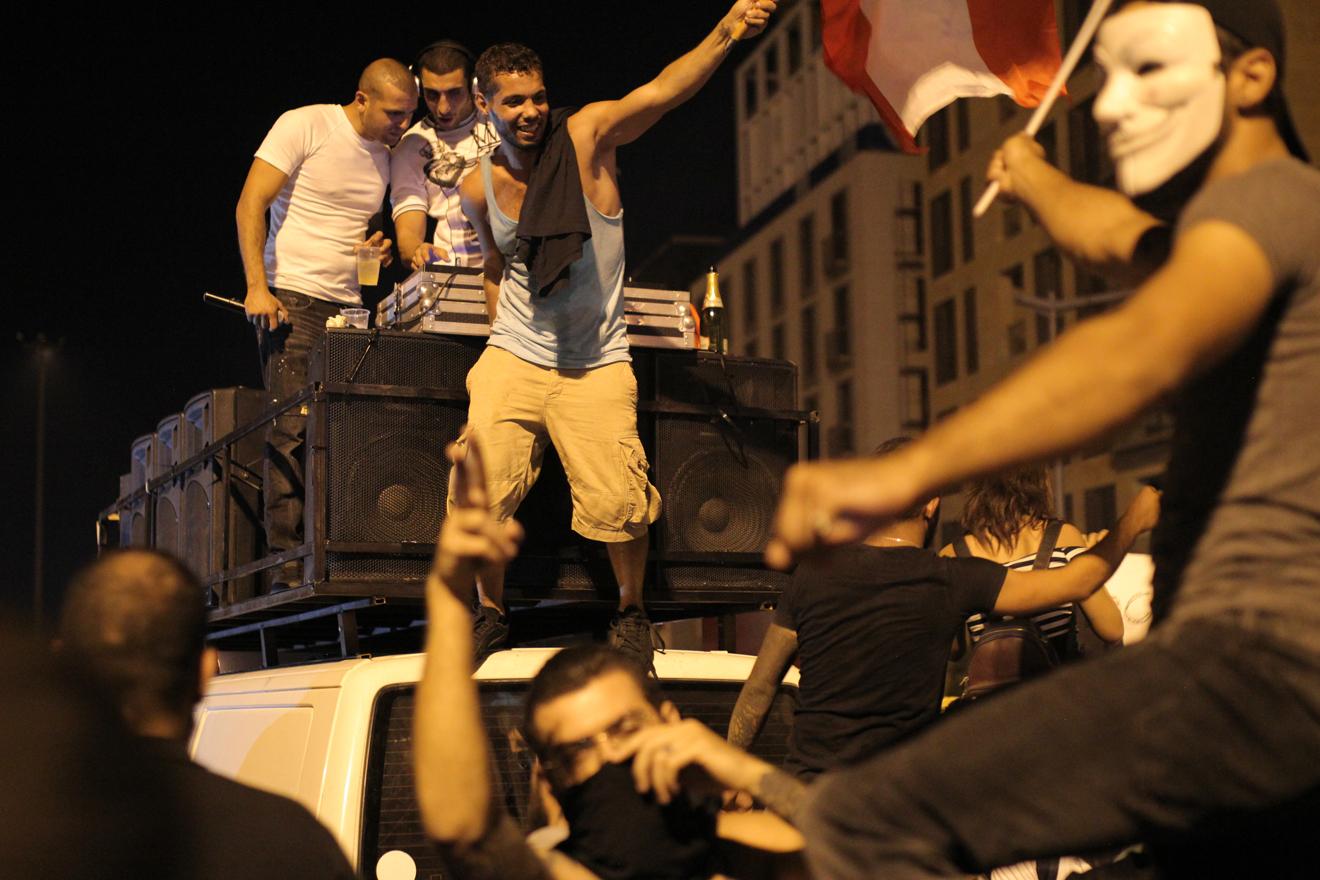
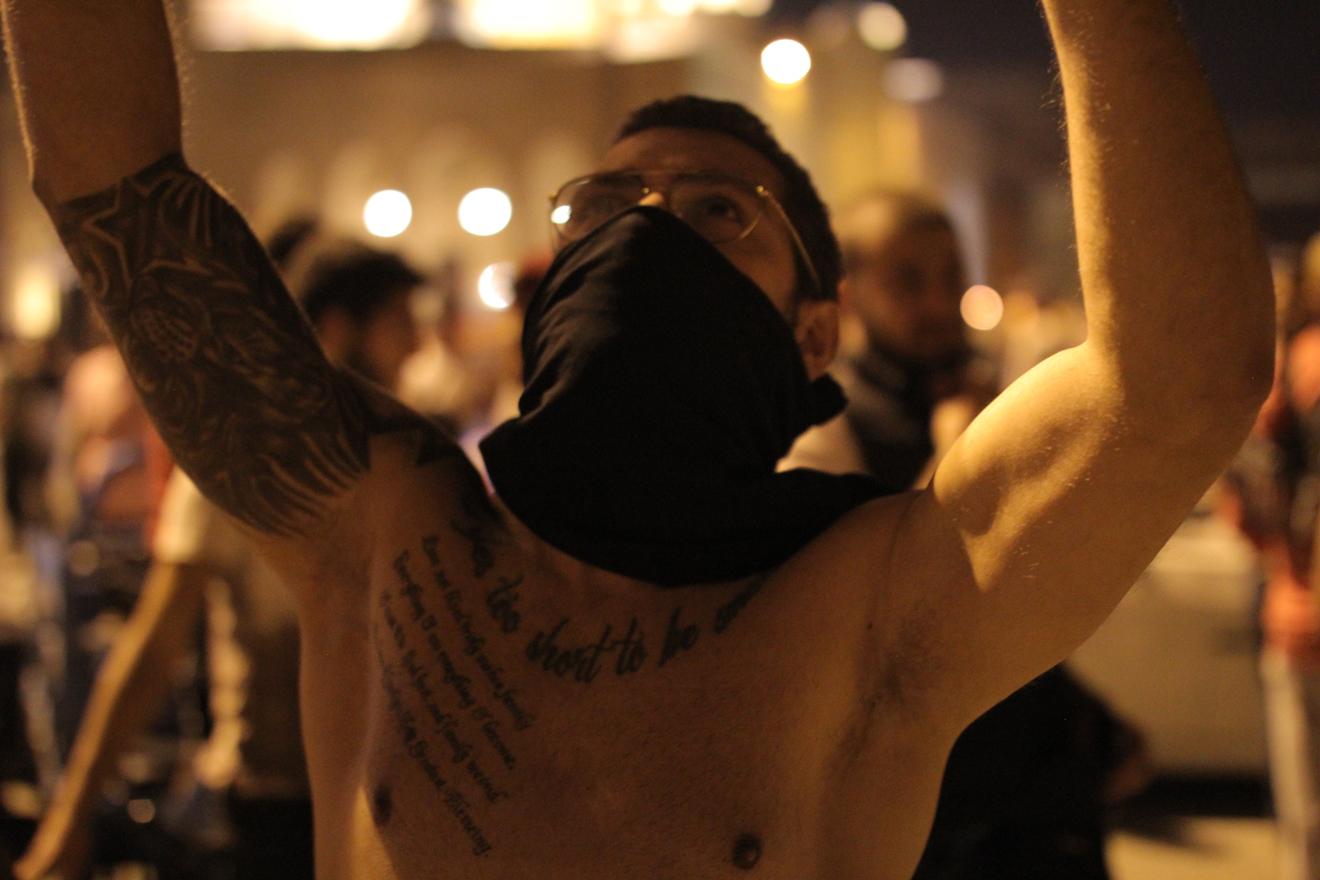
So far, this latest wave of protests in Lebanon has been defined mainly by hard partying and celebration rather than destruction and violence, however, there is edge of apprehension amongst the crowd in the square as the sound system is set up. Standing to one side Bassam, one of the crew of friends that rented the speakers and borrowed the van, is concerned that they could be targeted by supporters of the government. “We’re not sure if we’re going to play,” he says anxiously. “We don’t want to make too much of a scene in the current political climate. We’re going to make a decision sometime in the next ten minutes.”
Read this next: Belly of the beast: clubbing in Beirut
Usually, most of the people involved in Lebanon’s rave scene stay away from the country’s divisive and sectarian political protests – but this time it is different. As well as demonstrating against government corruption and increased taxation, these protests are pushing for an end to sectarianism in politics. Instead of carrying the flags of the country’s various religiously aligned political groups, protesters are, irrespective of their sect, all carrying the national flag of Lebanon.
“Until recently, I had never been to a protest before,” says Fonzo, a Beirut-based DJ who is friends with Bassam. “But, when I went to Martyrs’ Square and saw the flags everywhere, I knew that this time it was different.”
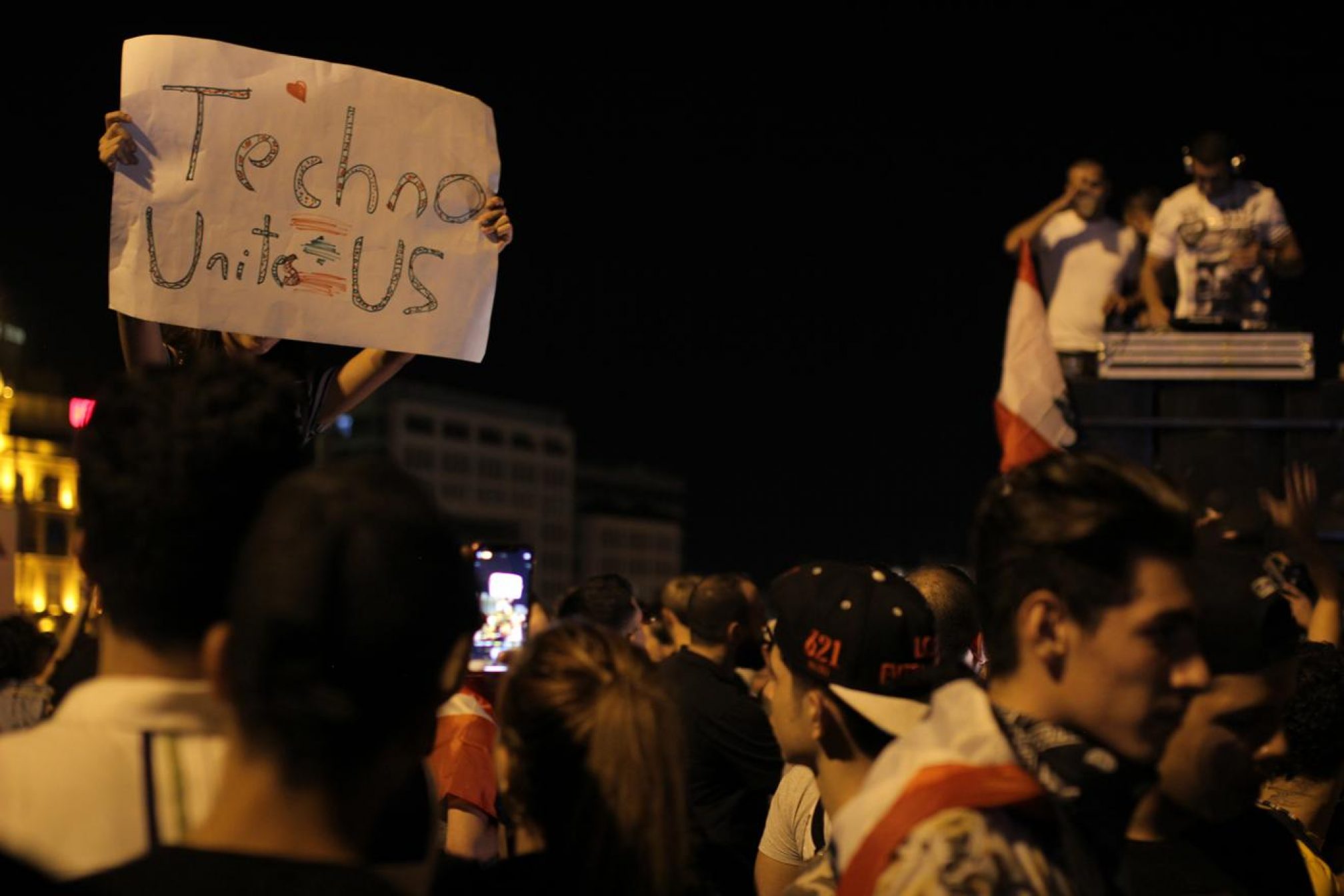
Just how different this wave of protests will be remains to be seen. Many are concerned that the country’s entrenched sectarianism will ultimately be a stronger force than the new movement to create a less divided society. There have already been several attacks on anti-government protest camps by groups of supporters of the Shia Muslim political parties Amal and Hezbollah. Another cause for concern is that, while protesters are united in their opposition to the old political system, there are disagreements about what should come next. There are also disagreements about whether partying and unlicensed raves are an appropriate form of protest when the possible outcomes for the country are so serious.
Despite the uncertainty and disagreements, right now, there is a feeling of optimism in the crowd. “I’ve hardly had any sleep since the revolution started,” says one shirtless man, sweating and grinning while clutching a huge Lebanese flag in one hand and drink in the other. “I’ve been manning protest road blocks all day and partying all night.”
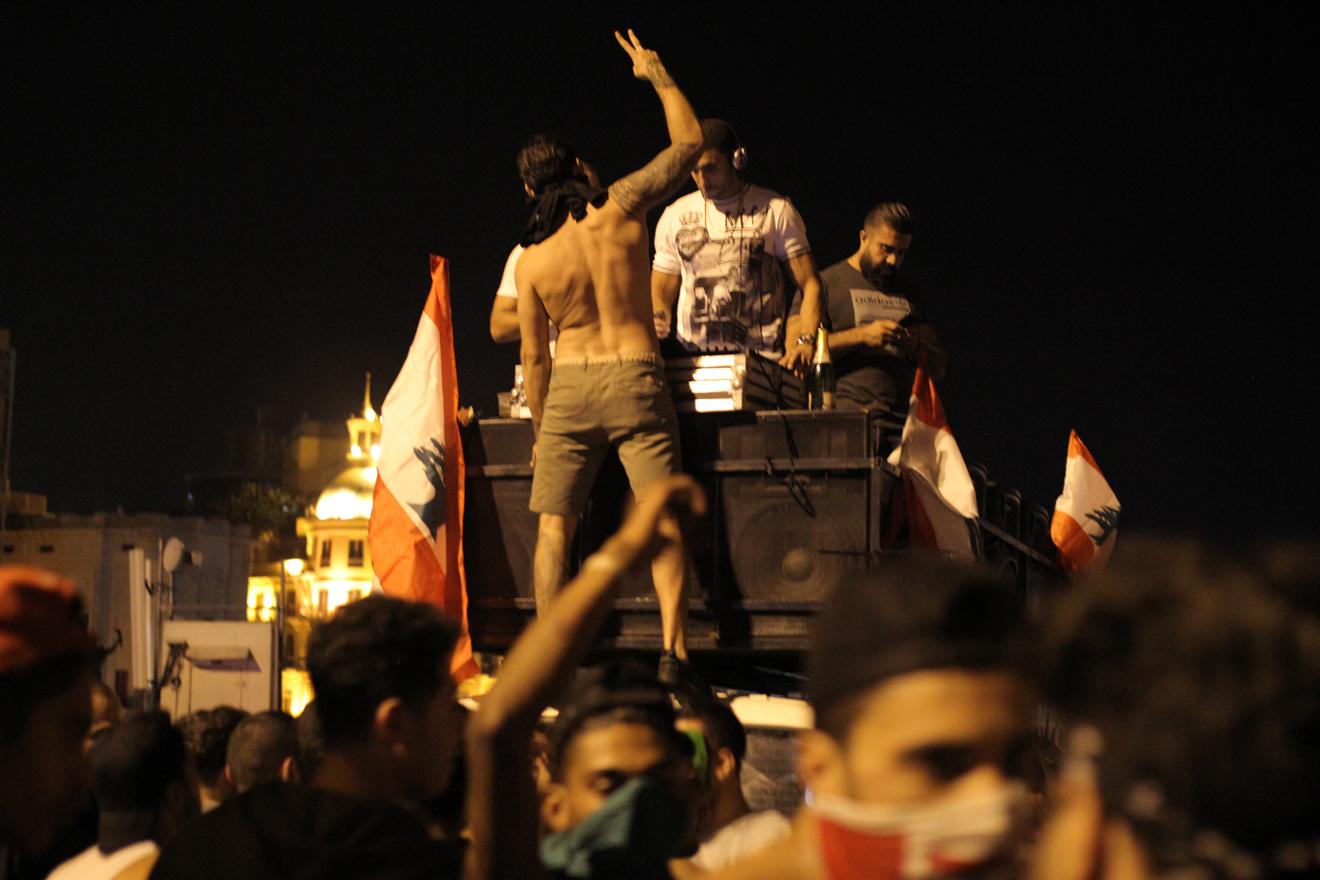
As time passes the crowd becomes increasingly impatient for music and more people gather around the van. Eventually, when Fonzo moves behind the decks and starts putting on his headphones, the crowd starts chanting “thawra,” the Arabic word for “revolution”.
The chanting descends into cheering and dancing when he drops his first tune – a house remix of Zaki Nassif’s 'Rajeh Yittammar', an Arabic folk anthem from Lebanon’s civil war, which directly translates as 'We Will Rebuild'. The remix was created by the Lebanese producer and former NBA basketball player Rony Seikaly as a direct response to the protests and was being played out on the streets of Beirut just hours after he uploaded it to SoundCloud on October 21.
As soon as the music starts blasting and the crowd is moving, the crew that brought the sound system quickly forget about keeping a low profile – encouraging people with large flags to join them on the roof of the van and spraying drinks all over the dancers at the front. As Fonzo mixes deep house and melodic techno people are grinning and slapping hands. A bearded hipster is dancing with a young Syrian migrant who was selling flowers on the street. Strangers are sharing cups of vodka and cigarettes.
Read this next: Legendary Beirut club B018 relaunches following futuristic redesign
Ever since the iconic B018 club opened in downtown Beirut in the 90s there has been strong link between the anti-sectarianism movement and electronic music in the country, Bassam tells me. “The clubs that play house and techno in Lebanon have always been a space where people can come together and forget the religious tensions in the county,” he says. “B018 was located in between West Beirut, which was predominantly Muslim, and East Beirut, which was mainly Christian – but everyone would go there.
“Religion doesn’t exist when everyone is in the same place and dancing to the same beat. People here like to enter a space where they can lose that sectarian identity.”
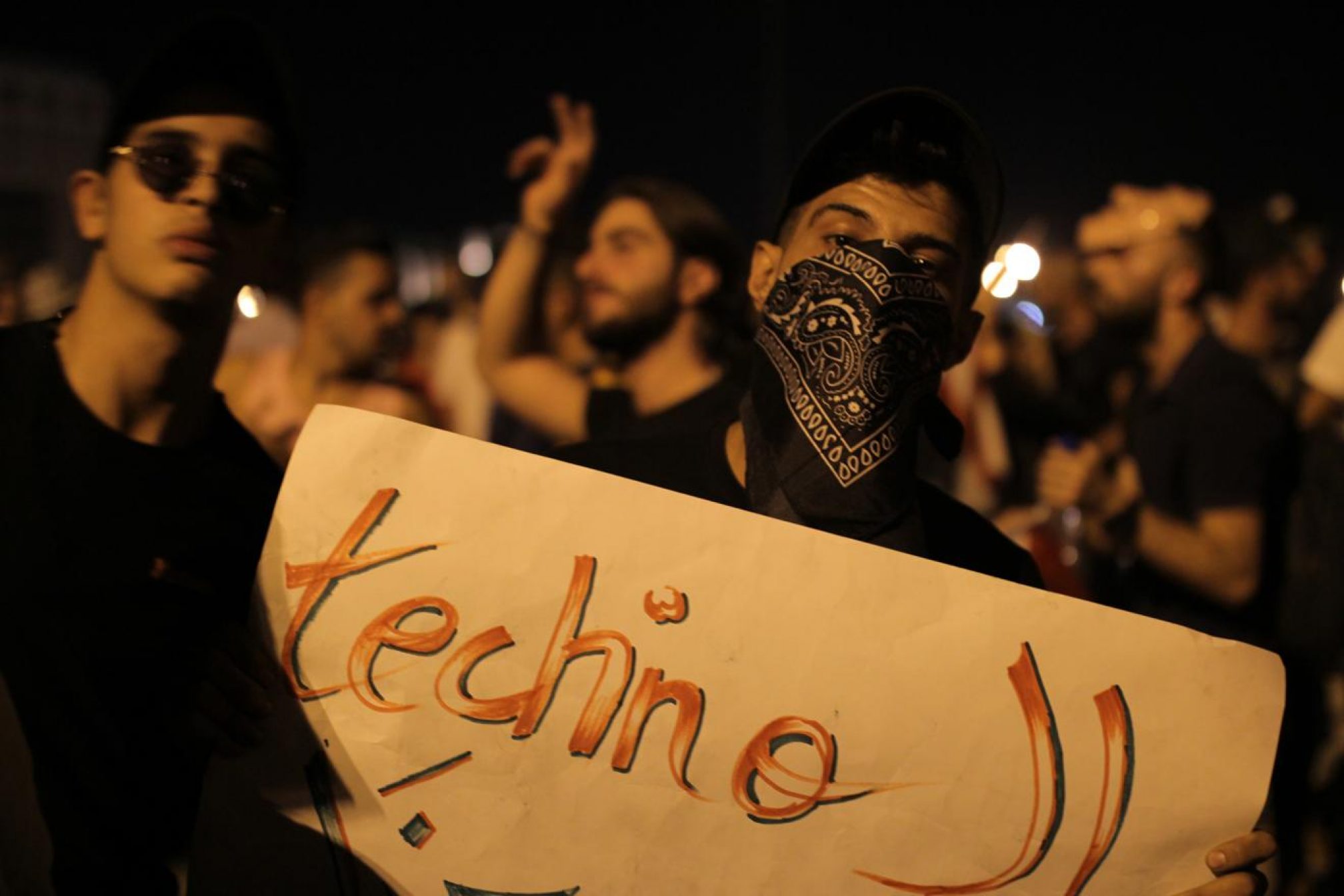
The next day, Fouad, another protester that has been arranging free parties in the city, suggests I should visit an abandoned brutalist cinema, known as The Egg, located in downtown Beirut. Partially built in the 1960s as part of a masterplan for overhauling the downtown area of the city, the building was damaged during the civil war, between 1975 and 1990, and left unfinished. Now in ruins, it is a vast, egg-shaped concrete shell supported by square pillars and accessible via a network of rusty, wobbling staircases and ladders.
That night, the rattle of an elderly diesel generator mingles with a steady bass thump that’s emanating from within as a shadowy trail of ravers zigzags past smashed windows and military road blocks, and in through the gaping holes that serve as entrances.
Read this next: "Never confined to one space": How Jessika Khazrik is fixing the future through techno
Inside it is dark, with just a couple of lights around the DJ, Goose Tann, who is positioned at the bottom of the staggered concrete steps, where the cinema screen would have been, weaving together a relentless chain of dark techno behemoths. People are spread out sparsely across the make-shift dance floor as the dark driving sound of theSHDDR remix of NÜWA’s 'Mechanic Owl' shudders through the shattered structure. Occasionally the crowd breaks out into a shouting and ululations rattle around The Egg’s raw concrete interior.
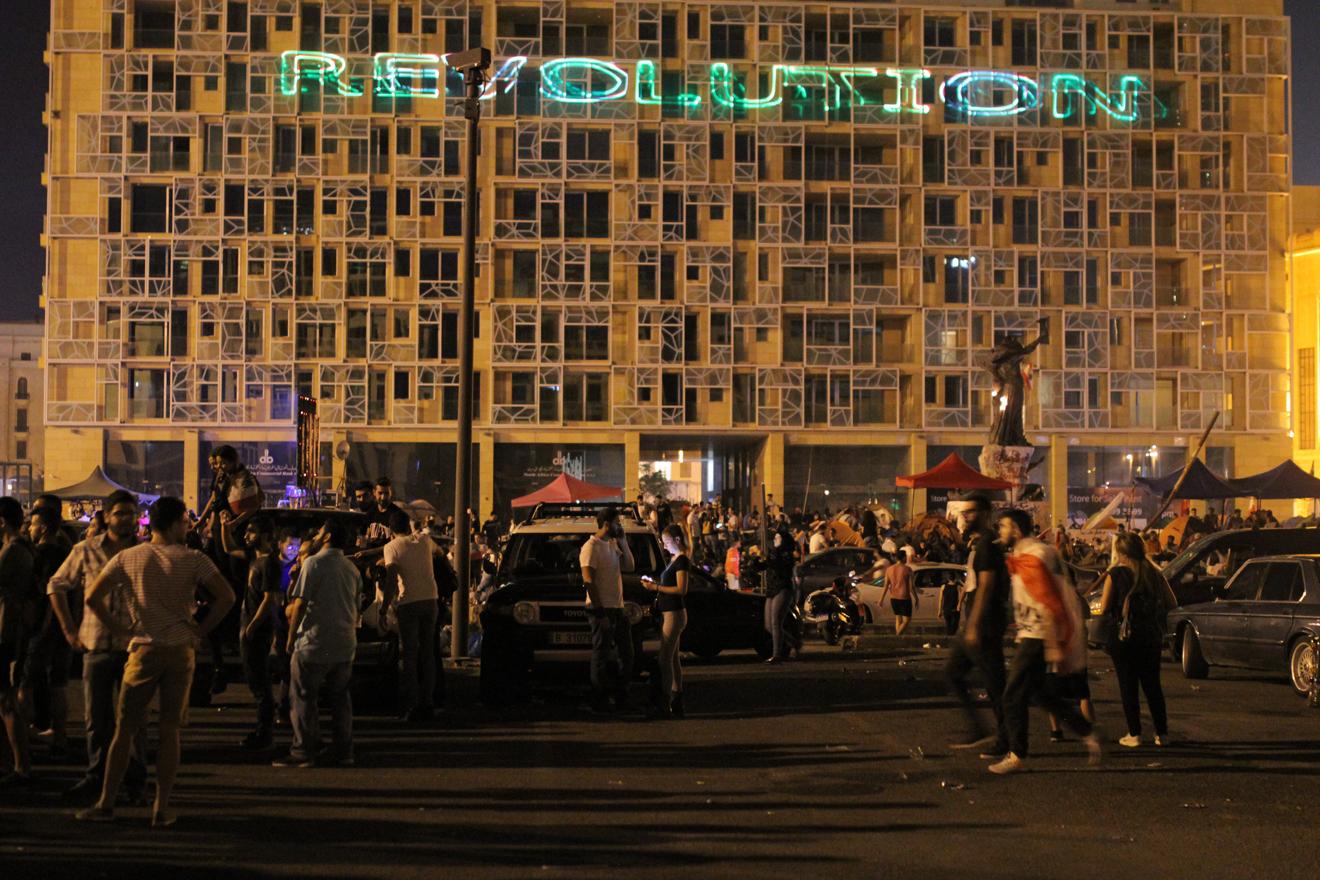
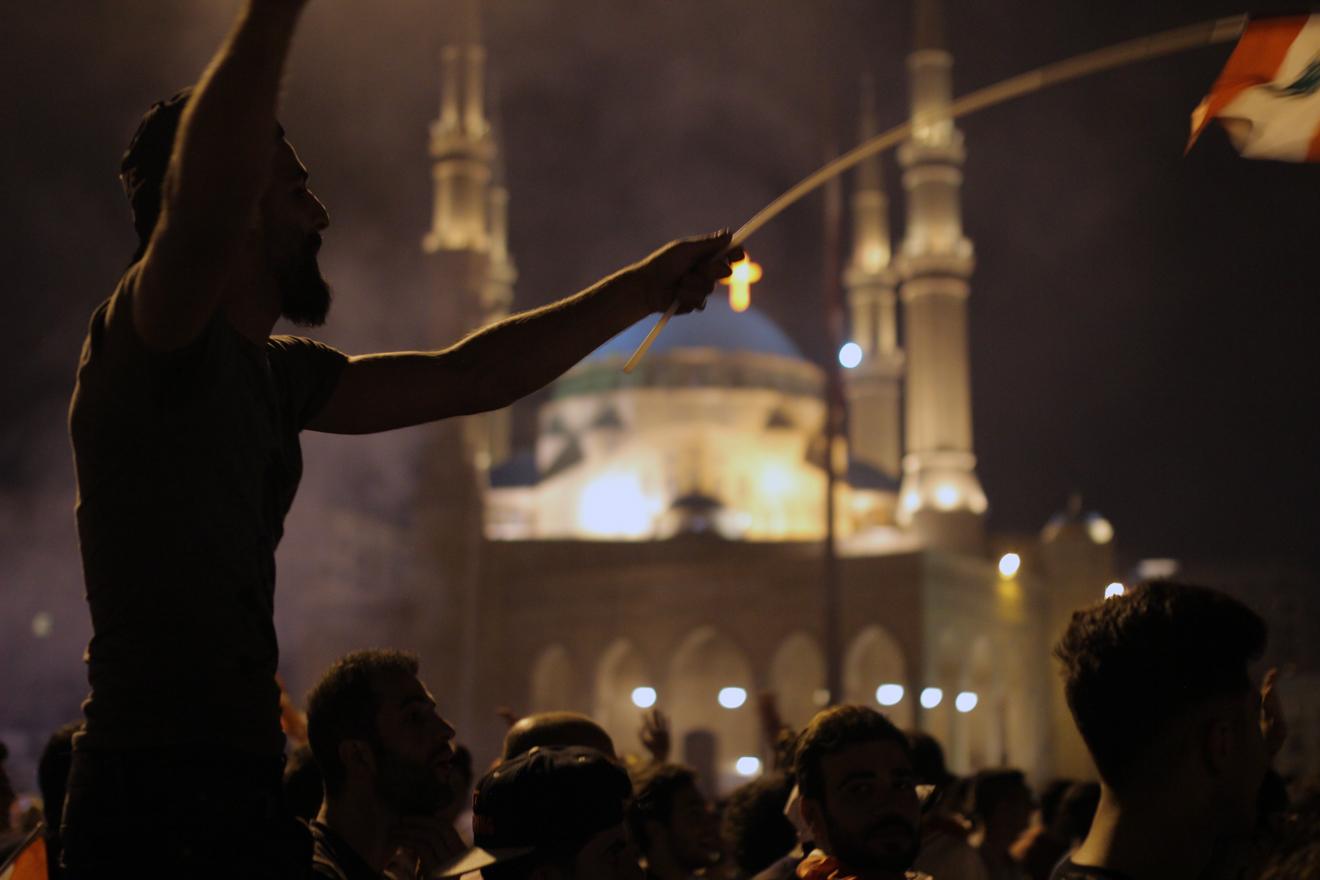
“Some people say we shouldn’t be partying so much right now,” Goose says as we sit on a ledge outside The Egg after his set, listening to the thumping bass high above the riot police manning checkpoints in the street. “But I think we are entitled to do this. Lebanon is in chaos. We don’t know what the future will bring and this is our way of creating, on a small scale, the kind of cooperative and unified community we want for the whole country.”
For Goose, like many others in Lebanon, the DIY protest raves are a powerful symbol. At a time of extreme political uncertainty, with potentially grave consequences, they show that the population can work together without being divided by religious identities.
Wil Crisp is a freelance journalist, follow him on Twitter
Read this next: Get the best of Mixmag direct to your Facebook DMs


